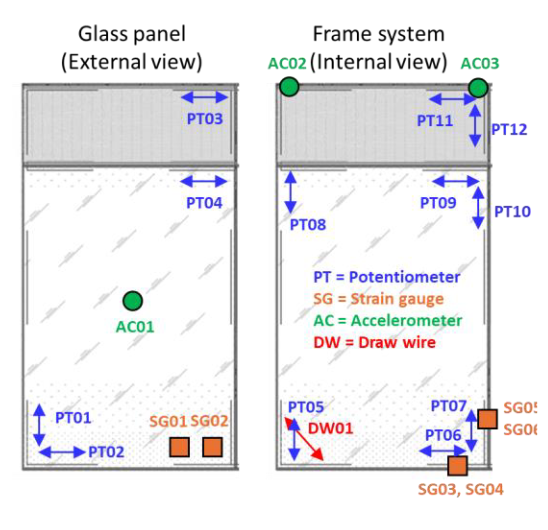Influence of Design Variables on Seismic Performance of Unitized Curtain Walls
A Parametric Experimental Study

Abstract
Creating safer and more resilient building facades has become a primary concern in contemporary design, particularly in earthquake-prone regions, where there is a potentially high impact on financial, social and environmental losses. Glazed curtain wall systems are widely used in modern architecture. Yet, despite decades of research efforts aimed at enhancing the understanding of their seismic
behaviour, it is not clear how design choices affect the response of glazed facades. This is crucial given the wide range of glass, framing and joint variations that are at our disposal. With a focus on unitized curtain walls, this paper provides insights into the influence of design variables on façade seismic response by means of an extensive experimental campaign and an associated parametric study to test alternative designs under both quasi-static and dynamic loading conditions. The variables considered included variations in unit dimensions, glass and joint aspect ratios, joint and framing detailing, and support conditions. This research delves into a statistical analysis of the experimental results, in order to define parameters such as glass and façade unit rotations, frame elongations and distortions, utilization factors at different intensity levels. The results provide insights that guide façade design decisions for achieving desired seismic performance levels.
Published
Issue
Section
Experimental & Numerical Investigations
License
Copyright (c) 2024 Simona Bianchi, Guido Lori, Valerie Hayez, Mauro Overend, Giampiero Manara

This work is licensed under a Creative Commons Attribution 4.0 International License.



